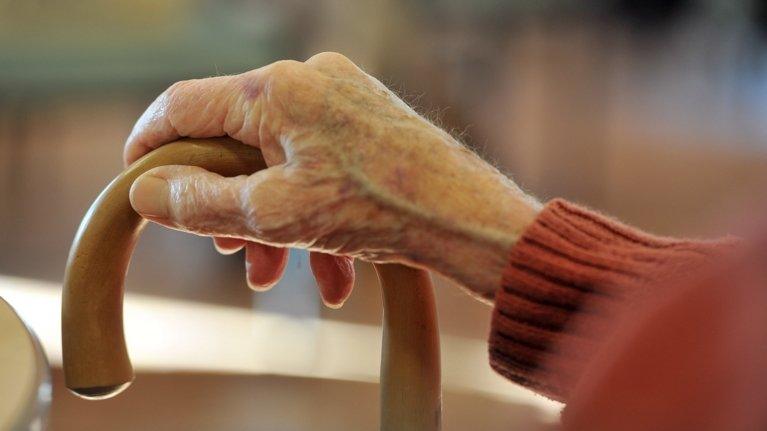Nearly 14,000 disabled people have mobility cars taken away
- Published
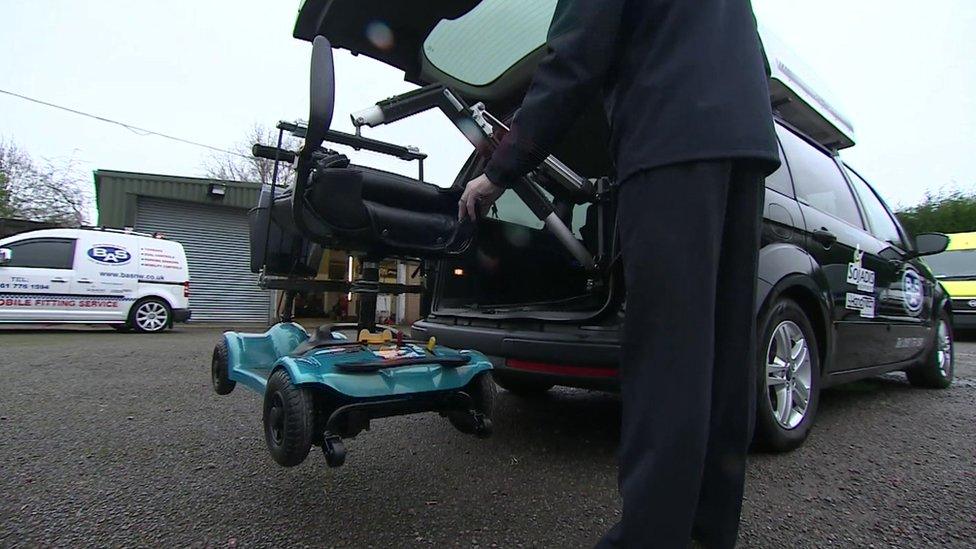
The Motability Scheme allows disabled people to lease a new car, scooter or powered wheelchair with the help of government funding
Nearly 14,000 disabled people who rely on a specialist motoring allowance have had their cars taken away from them following government welfare changes.
Figures seen by the BBC show almost half of those having to be reassessed for this support under the changes lost their Motability vehicle., external
Many had been adapted to meet their owners' needs and campaigners warn it could lead to a loss of independence.
But the government says the new process is fairer and people can appeal.
More than 650,000 people currently use the Motability Scheme, which allows disabled people to lease a new car, scooter or powered wheelchair using their government-funded mobility allowance.
The scheme also helps towards the cost of adaptations - such as a hoist for a wheelchair or hand controls - that the individual requires.
Denise Haddon explains why her car is so important to her
Face-to-face
Until recently, anyone receiving the highest rate of the "mobility component" of Disability Living Allowance (DLA) was eligible for the scheme.
However, as part of Department for Work and Pensions welfare changes, the Personal Independence Payment (PIP) began replacing DLA from April 2013, external.
Under DLA, most people completed their own application form and did not have to reapply once entered into the scheme.
With PIPs, everyone - new applicants and those already in receipt of DLA - will have to attend a face-to-face assessment by government-hired private companies, and only those scoring 12 points or more will qualify for support - currently £57.45 per week.
To date, Motability has seen around 51,200 people join the scheme using PIP.
Of those previously on higher rate DLA, 31,200 people have so far been reassessed for PIP, and of those, 55% - or 17,300 - have kept their car.
But the remaining 45% - 13,900 people - have lost the higher rate and therefore their car as well.

'She hadn't got a clue'
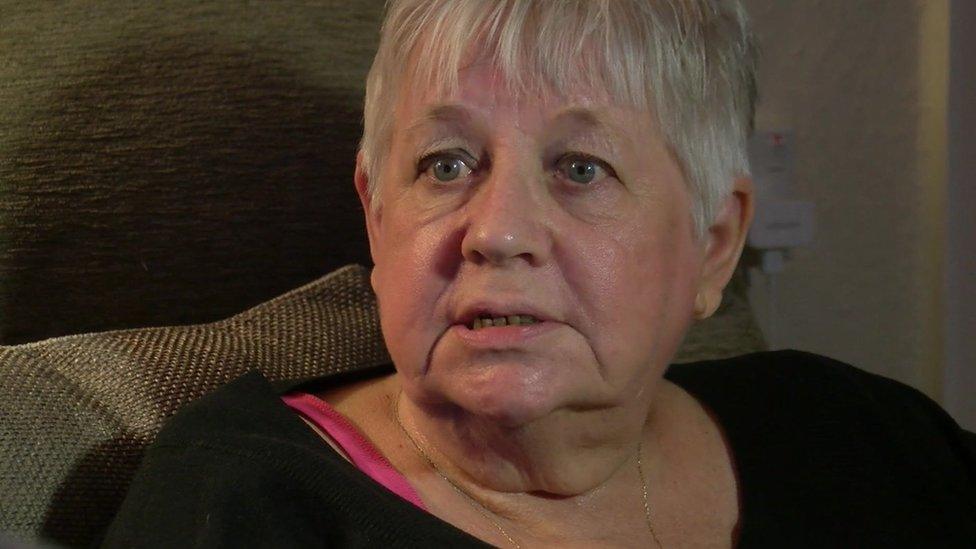
Despite being an amputee with spina bifida, who is only able to take a few steps, Christine Mitchell did not score the points she needed to keep her Motability car.
She appealed and eventually won, but is extremely critical of the reassessment process.
"I explained to the lady in detail that I wasn't able to walk. She asked me how far I could walk, and there was a filing cabinet that was maybe 3ft away, and I said I could possibly walk that far.
"It was so frustrating. I looked at my husband and I was near enough in tears because I couldn't make her understand.
"She hadn't got a clue what spina bifida was."

Some 360,000 people will eventually undergo PIP reassessments, including those currently on an "indefinite" or "lifetime" DLA award.
Disabled children will continue to receive DLA until they reach the age of 16 and those who were aged 65 or over on 8 April 2013 are also unaffected.
Liz Sayce, chief executive of Disability Rights UK, told the BBC "being disabled costs money".
"The Personal Independence Payment is supposed to help with those costs, but many people are being denied the benefit because they are not assessed properly.
"Sometimes that means people lose their cars; a massive blow which impacts on their ability to remain independent, take part in their communities or get and keep a job."
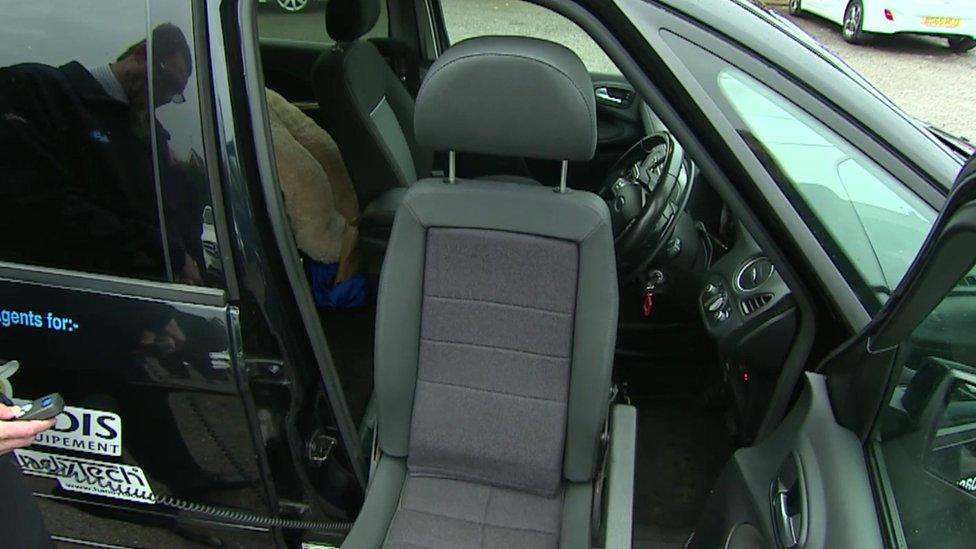
Some of the adaptations required by disabled drivers are expensive to install
Minister for Disabled People Justin Tomlinson said people's circumstances changed over time and it was right they should be reassessed.
"But rightly we have a system that allows for an appeal, a mandatory reconsideration and then if they're not satisfied with that they can go for an independent appeal, so there are lots of opportunities if a claimant thinks a decision is wrong to have that looked at again."
Latest figures show that of all the appeals to do with PIP, 60% have found in the claimant's favour.
Motability says it provides a support package, including a £2,000 grant, to anyone forced to leave the scheme following a PIP reassessment.
The charity added: "This helps individuals to remain mobile, in many cases by purchasing a used car. Motability has already provided some £16m in support through this transitional package."
The government hopes to save £2bn as a result of the switch from DLA to PIPs.
- Published20 June 2014
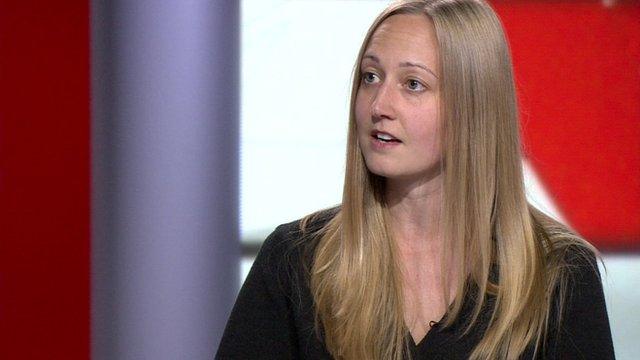
- Published8 April 2013
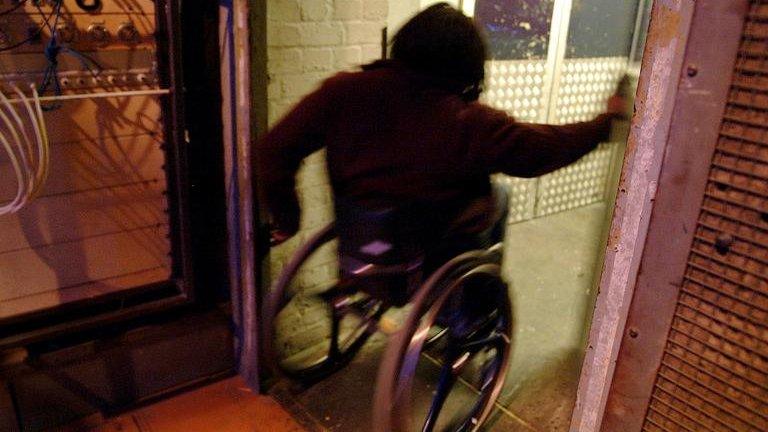
- Published14 February 2013
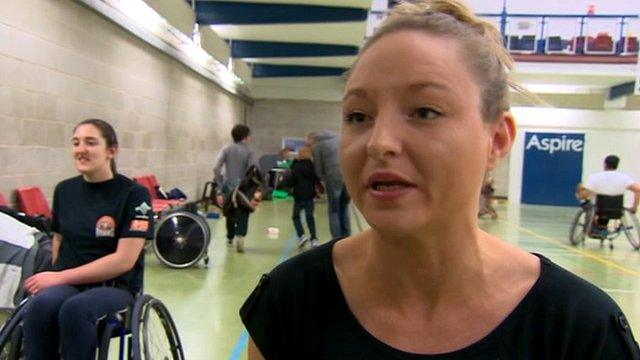
- Published28 January 2013
